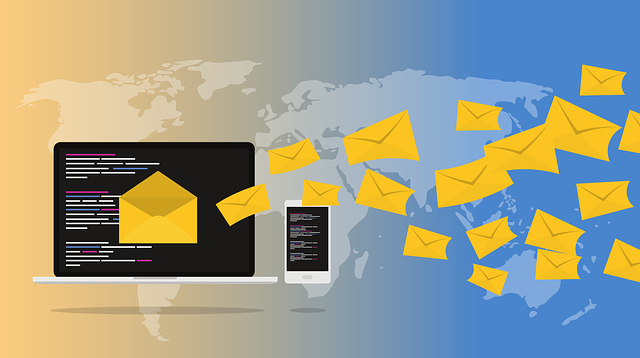AI marketing coaching is a powerful tool for automotive industry leaders looking to stay competitive and drive sales growth. By integrating advanced analytics, predictive modeling, and customer insights, businesses can optimize campaigns, enhance lead generation, and improve vehicle maintenance. AI consultants help navigate this evolving landscape through data-driven decisions on pricing, autonomous driving, and customer engagement, ultimately fostering loyal relationships and boosting sales. A structured approach, starting with assessing current marketing needs, defining goals, exploring tools, and conducting pilot tests, ensures successful AI implementation in automotive businesses.
In today’s digital age, Artificial Intelligence (AI) is transforming the automotive industry, offering unprecedented opportunities for innovation and growth. For automotive business owners, understanding and leveraging AI marketing strategies is crucial to stay competitive. This article provides a comprehensive guide on how AI consulting can revolutionize your automotive business. We explore the significant benefits of AI coaching, offer insights into its role, and present a step-by-step implementation process tailored for automotive marketers.
- Understanding AI's Role in Automotive Businesses
- The Benefits of AI Consulting for Automotive Industry Owners
- Implementing AI Strategies: A Step-by-Step Guide for Automotive Marketers
Understanding AI's Role in Automotive Businesses

Artificial Intelligence (AI) is transforming the automotive industry, offering unprecedented opportunities for businesses to enhance their operations and stay competitive. For automotive business owners, leveraging AI marketing coaching can be a game-changer. It enables them to harness advanced analytics, predictive modeling, and customer insights to create personalised experiences tailored to individual buyer preferences. By integrating AI into marketing strategies, automotive businesses can optimise their campaigns, improve lead generation, and ultimately drive sales.
AI’s role extends beyond marketing; it also streamlines after-sales services, improves vehicle maintenance through predictive diagnostics, and enhances overall customer engagement. With the right AI consulting, business owners can navigate this ever-evolving landscape, making informed decisions to stay ahead of the curve. This includes understanding customer behavior patterns, optimising pricing strategies, and even exploring autonomous driving technologies, all while leveraging data-driven insights for better decision-making.
The Benefits of AI Consulting for Automotive Industry Owners

For automotive industry owners, embracing AI consulting is a strategic move that opens doors to unprecedented advancements and competitive advantages. By partnering with experts in AI marketing coaching for automotive business owners, they gain valuable insights into leveraging cutting-edge technologies to transform their operations. From predictive analytics that optimize inventory management to natural language processing enhancing customer service through chatbots, AI offers tailored solutions for every aspect of an automotive enterprise.
This consulting not only helps streamline processes and reduce costs but also allows businesses to stay ahead of the curve in a rapidly evolving market. By integrating AI into marketing strategies, automotive owners can personalize customer experiences, improve targeted advertising, and gain deeper insights into consumer behavior, ultimately driving sales growth and fostering stronger customer loyalty.
Implementing AI Strategies: A Step-by-Step Guide for Automotive Marketers

Implementing AI strategies can seem daunting, but for automotive business owners, a structured approach can make this transformation accessible and rewarding. Here’s a step-by-step guide to get started with AI marketing coaching:
1. Assess Current Marketing Landscape: Begin by evaluating your existing marketing strategies and identifying areas where AI could bring significant improvements. Focus on understanding customer behavior, data collection methods, and existing pain points in your sales funnel. This initial assessment will help tailor your AI implementation.
2. Define Specific Goals: Determine clear, achievable goals for your AI initiatives. Whether it’s enhancing personalized recommendations, streamlining lead generation, or improving predictive analytics for inventory management, setting specific objectives ensures focused coaching and measurable results.
3. Explore AI Tools and Technologies: Research and select AI tools suitable for your automotive business. This could range from natural language processing (NLP) for chatbots to machine learning algorithms for data analysis. Consider platforms that offer easy integration with existing marketing systems, ensuring seamless implementation under the guidance of AI marketing coaches.
4. Data Preparation and Collection: Prepare your data by cleaning and organizing it effectively. High-quality data is crucial for training AI models accurately. Ensure you collect relevant customer data, including browsing behavior, purchase history, and feedback, to create a comprehensive dataset for analysis.
5. Pilot Testing and Iteration: Start with small-scale pilot projects to test and refine your AI strategies. This iterative process allows for adjustments based on real-world performance. Engage with AI marketing coaches to analyze results, identify areas of improvement, and make necessary modifications before full-scale implementation.
AI consulting offers a transformative opportunity for automotive businesses seeking to stay ahead in an increasingly competitive market. By leveraging AI marketing coaching, industry owners can unlock significant benefits, from data-driven insights that optimize vehicle development and customer experiences, to improved operational efficiency across manufacturing and logistics. Following the step-by-step guide provided, automotive marketers can strategically integrate AI into their operations, positioning themselves for sustained success in the digital age.
